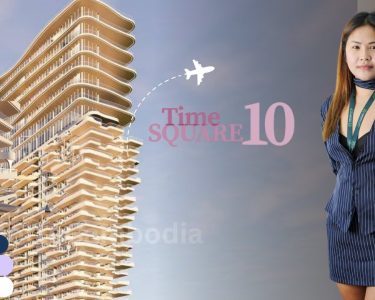Cambodia Investment Review
Cambodia’s real estate market may be navigating one of its most challenging periods in recent years, but a new development in Chbar Ampov is proving that demand remains resilient when housing aligns with affordability and location. Metra Estate Legacy, developed by Metra BCCJP Co., Ltd., recorded 90% subscription of its first 220 units in Phase 1A ahead of its official launch on November 16 — a level of momentum largely unseen across the wider residential market.
The early take-up, driven by walk-ins, word-of-mouth referrals and pre-launch Open House events for employees of strategic partners, is widely seen by market observers as a sign of a structural supply gap in Cambodia’s housing sector. While oversupply persists in the luxury and upper-tier segments — where prices typically start from $80,000 — developers have been slow to introduce projects positioned for what analysts refer to as the P50–P80 income segment, representing 40% of total housing demand nationwide.
According to Metra, the majority of buyers in Phase 1A were Cambodian households in the 50th to 80th income percentile — dual-income working families earning between $900 and $1,200 per month. This cohort includes teachers, government officials, nurses, small business owners, factory supervisors and junior professionals — groups increasingly priced out of Phnom Penh’s urban residential market.
“The strong take-up of Phase 1A before official launch confirms what industry data has long suggested — there is substantial, unmet demand from Cambodia’s working families,” said Kenn Yeo, CEO of Metra BCCJP Co., Ltd. “These aren’t speculative buyers; approximately 90% are Cambodian households from the P50–P80 income segment, many of whom are seeking their first family homes.”
Read More: An Untapped Market Opportunity: The Business Case for Cambodia’s Middle-Income Housing
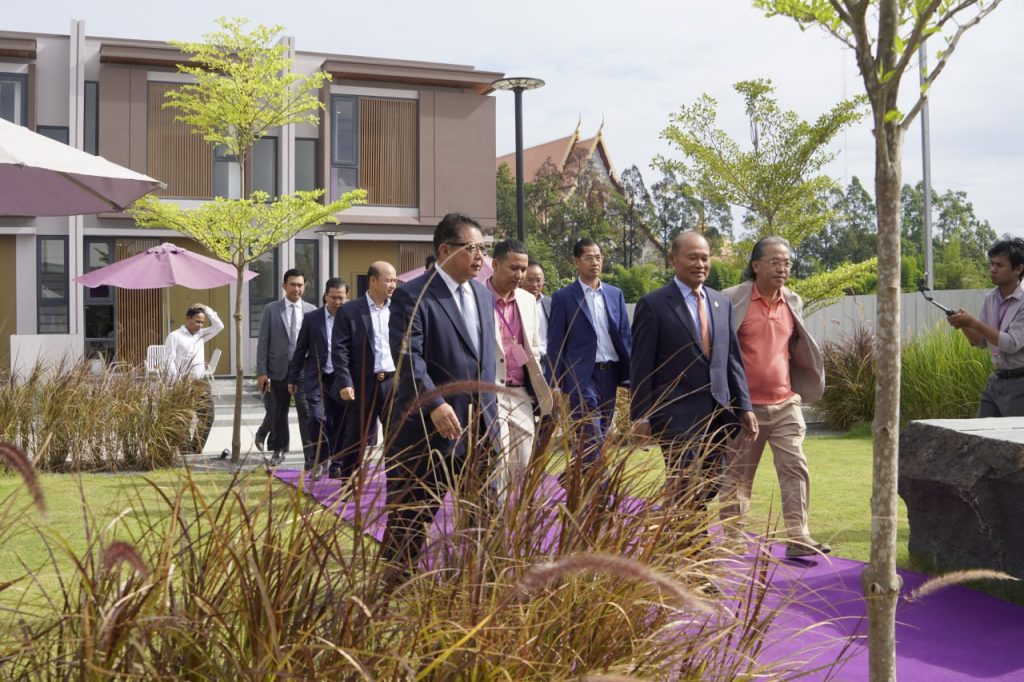
A Strategic Play on Middle-Income Demand
The foundation of Metra Legacy’s market traction is a positioning the company calls “attainable value housing,” designed to pair quality and dignity with price levels that track the financial capacity of middle-income households. The project — located roughly 12 km from Wat Phnom in the Chbar Ampov district — enters a prime residential corridor within commuting distance of factories, schools, retail hubs and job centers.
Completed homes are priced from $49,000, with typical mortgage repayments of approximately $300 per month — comparable to prevailing rental rates for similar family-sized units. Buyers can access up to 90% loan-to-value mortgages over 25 years at interest rates of around 6.5%, provided through independent commercial banks rather than in-house financing.
The configuration of the units is also designed specifically for family usage rather than investment flipping. Each ~60 sqm link house features three bedrooms, two bathrooms, a living-dining-kitchen layout, a backyard and a car porch. A furniture package priced at roughly $6,000 and a solar installation option costing $3,500 can both be integrated into mortgage plans, giving buyers additional cost-of-living flexibility.
Another critical factor for the market response is risk mitigation. The project is built on privately owned freehold land, not concession land, and subdivided hard titles will be issued for each unit and plot — a structure that removes common barriers to mortgage approvals.
“Complete legal protection for both buyers and banks has been a core principle of Metra’s development model,” Yeo added. “Subdivided hard titles upfront help ensure attractive mortgage terms and reduce risk premiums for homebuyers.”
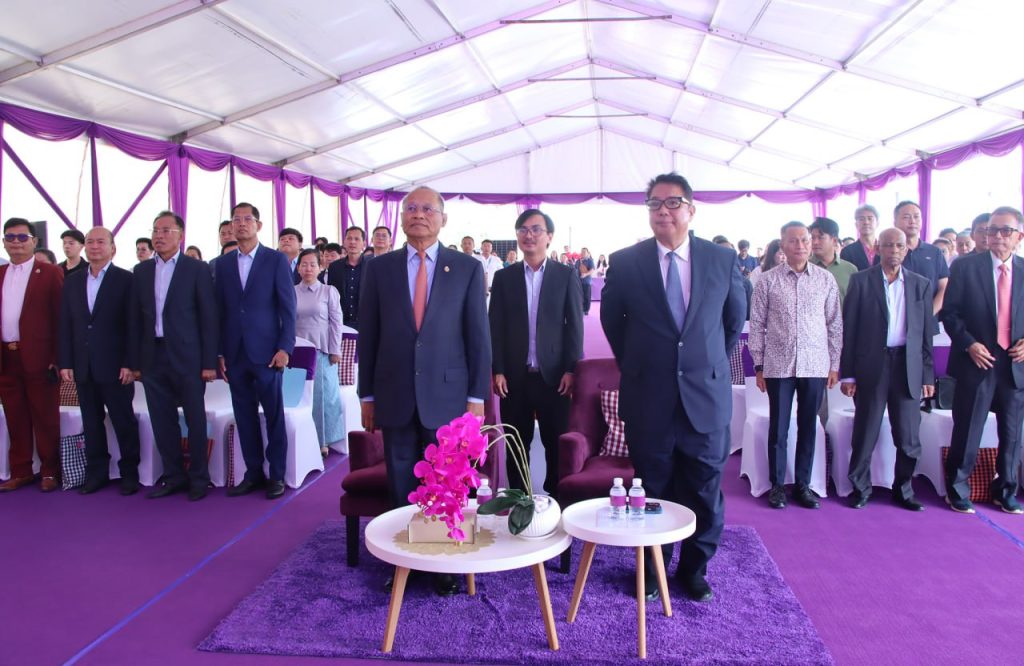
Beyond Housing — Community and ESG Alignment
Unlike traditional affordable housing models that often rely on remote locations and limited infrastructure, Metra Legacy incorporates community-focused amenities intended to support long-term residency rather than transient occupancy.
Plans include:
- A town center offering affordable retail space for micro-businesses
- Job opportunities and skills-training programs
- Security and green spaces
- A residents’ club featuring a small gym and swimming pool
- Clean drinking water at below-market rates
The development is also on track to receive EDGE certification for energy efficiency. The optional solar power system is expected to reduce electricity bills by USD 50–60 per month, offering relief against rising living costs — a key concern for young families.
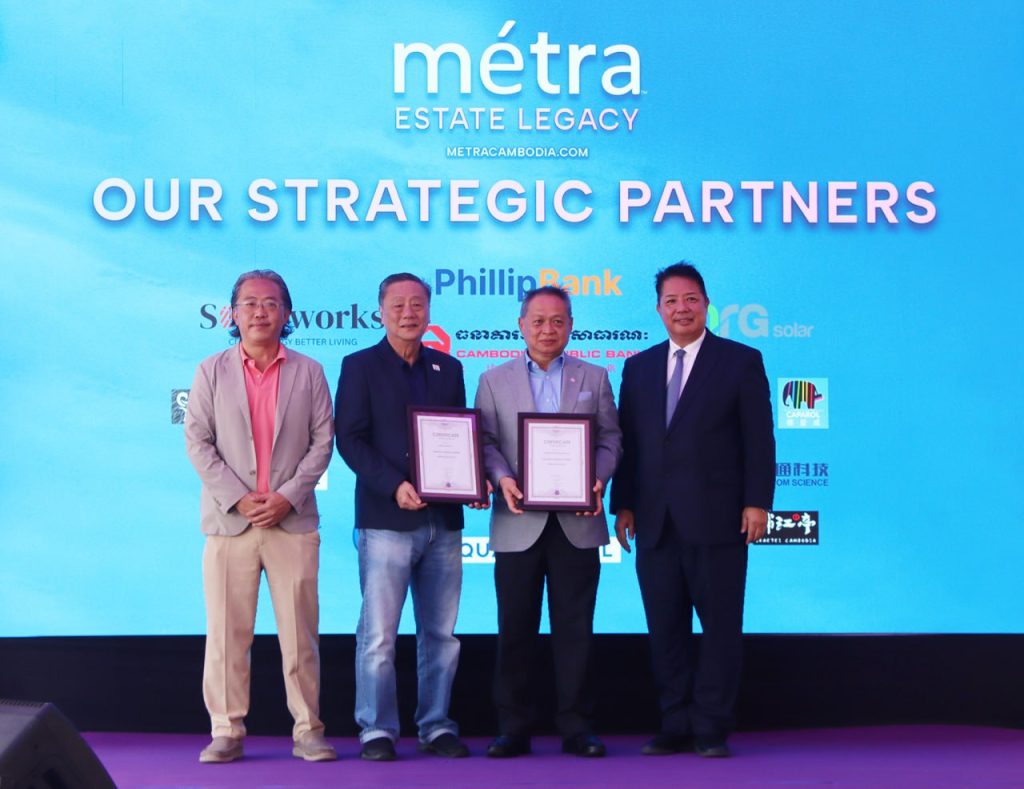
Implications for Cambodia’s Housing and Banking Sectors
Analysts say the project’s early performance may highlight a turning point for both developers and mortgage banks. With oversupply in higher-end segments reducing absorption rates, middle-income housing could represent the next phase of market evolution.
Financial institutions are also watching closely. End-users — particularly first-time homebuyers — have historically shown lower credit risk than speculative purchasers, and Metra’s model includes risk controls that simplify mortgage underwriting.
“This project proves that serving Cambodia’s middle-income segment can be both socially impactful and commercially viable,” Yeo said. “The multiplier effects — construction employment, supply chain activity, bank participation and broader social mobility — extend well beyond the first 220 households.”
Read More: EuroCham Cambodia Hosts Workship on Affordable Housing Development
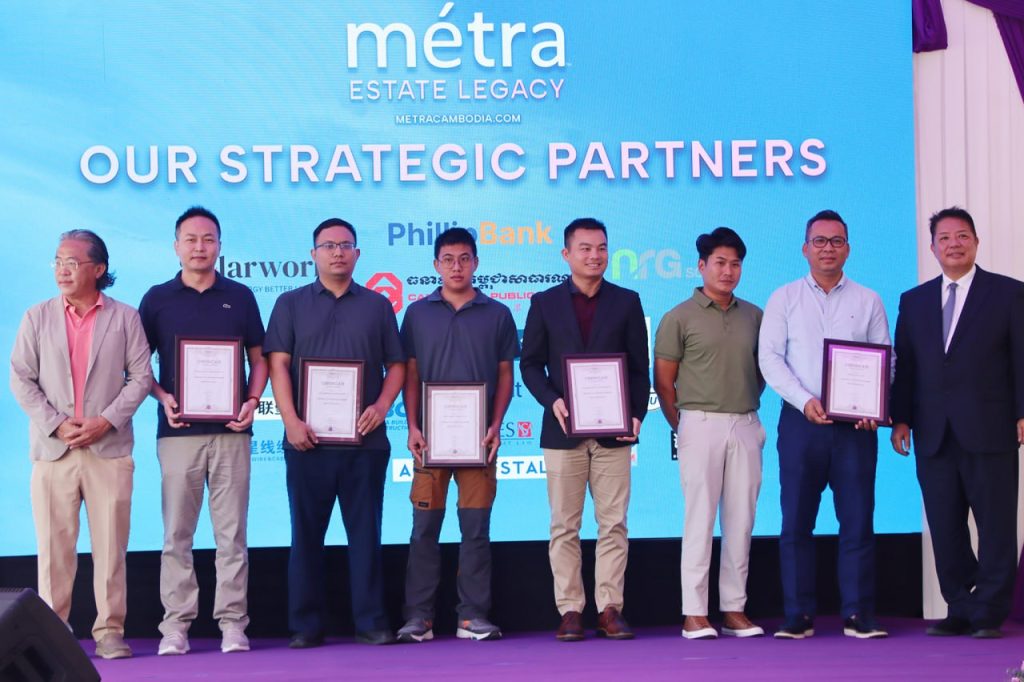
Next Phases and Industry Outlook
Metra has confirmed that Phase 1B will open for registration next, with subsequent phases planned to respond to ongoing demand. Total development volume across all phases amounts to 2,703 units on a 30-hectare freehold site, with an estimated population of 12,000 residents upon full completion.
Industry observers suggest that if Phase 1A momentum continues, other Cambodian and regional developers may be encouraged to shift toward the attainable value housing model — particularly as the policy environment begins to emphasize social equity, urban planning standards and sustainable financing.
“The response to Metra Estate Legacy sends a clear signal to the industry,” said Nagata Tetsuji, Chairman of Metra BCCJP. “There is a massive, underserved market waiting for quality housing that respects their financial reality and aspirations. The question is no longer whether this segment exists, but how quickly the industry can scale solutions to meet the demand.”
Phase 1A of Metra Legacy is scheduled for completion within 9–12 months, with the full project to be delivered over five phases.
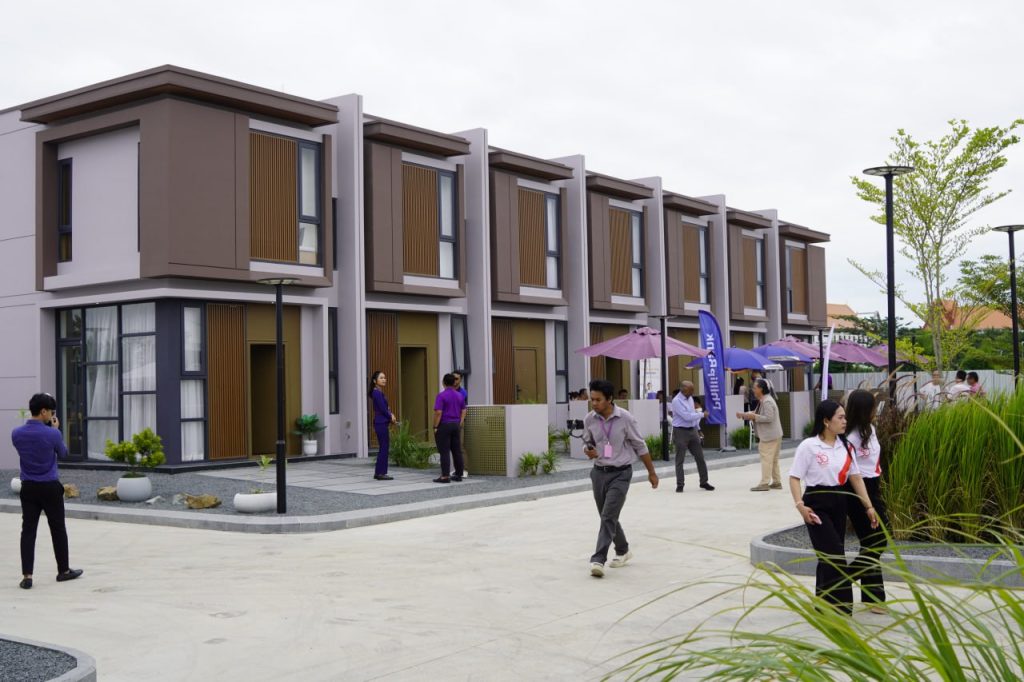
For More Information
Metra Cambodia
📞 +855 16-311-948
📧 info@metracambodia.com
📍 No. 241, Street 63, Metra Tower, Sangkat Boeng Keng Kang 1, Khan Chamkarmon, Phnom Penh, Cambodia





